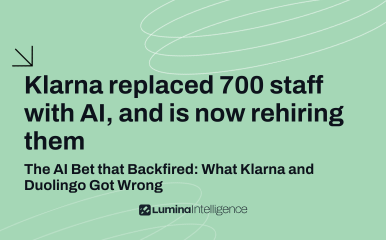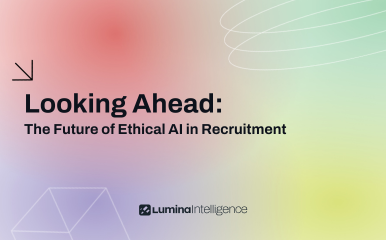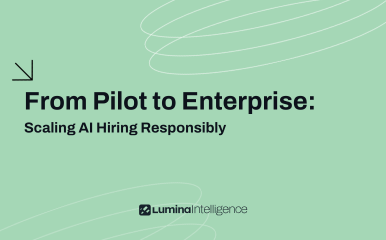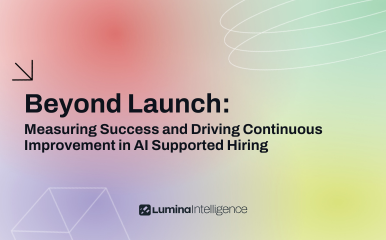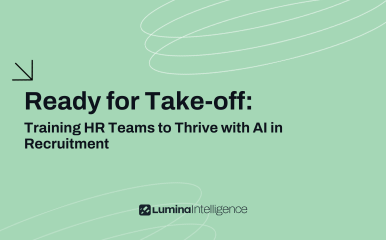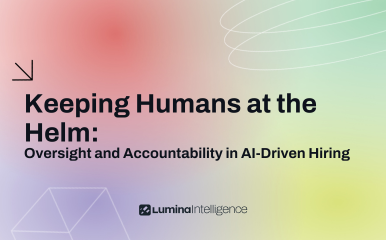Introduction
Over the last three weeks, we’ve established the importance of ethical AI in hiring, explored the regulatory landscape, and delved into bias mitigation. A central theme throughout has been the concept of trust—candidates need to feel confident that automated processes will treat them fairly and securely. This week, we focus on privacy and data protection, a critical aspect of ethical AI that underpins the entire hiring process.
From the moment candidates upload their CVs to the final job offer, large volumes of personal information are collected, processed, and stored. When AI enters the picture—analysing and ranking applicants—additional concerns arise about what data is gathered, how it’s used, and who can access it. This article will outline key privacy considerations, legal obligations, and best practices for building a transparent, trustworthy recruitment pipeline.
Why Privacy Matters in AI-Driven Hiring
AI tools thrive on data. The more candidate information they have, the more “insight” they can ostensibly generate. However, collecting personal details beyond what’s strictly necessary can lead to serious risks:
- Breaches of Trust: If candidates fear their data is being misused, they may shy away from applying or sharing sensitive information, depriving you of strong potential hires.
- Legal Repercussions: Privacy breaches can violate the UK GDPR or other data protection regulations, potentially leading to hefty fines and reputational harm.
- Ethical Obligations: Treating private data with care respects a fundamental right to privacy and aligns with the wider goals of fair and responsible AI adoption.
The Legal Landscape: UK GDPR and Beyond
Although the UK left the EU, the core principles of GDPR still apply, now enshrined in UK law with some localised updates. Here are some of the major points recruiters and employers must keep in mind:
- Data Minimisation: Collect only the data you truly need for a valid hiring purpose. Storing unnecessary information not only heightens the risk of breaches but also violates GDPR’s principle of minimisation.
- Purpose Limitation: Inform candidates clearly about how their data will be used. If AI tools are deployed, candidates should understand that automated decision-making plays a role in their application assessment.
- Consent and Legitimate Interests: You must have a lawful basis for processing candidate data—often this is “legitimate interest,” but if sensitive data is involved, you may need explicit consent.
- Automated Decision-Making Rights: Under GDPR, candidates have the right to not be subject solely to automated decision-making in cases that significantly affect them. They can request human intervention or challenge an automated outcome.
Collecting and Processing Data Ethically
AI-driven recruitment often involves more than just CV parsing—think online assessments, video interview analyses, and psychometric tests. Here’s how to collect data responsibly:
Be Transparent
- Provide a succinct yet clear privacy notice on all application forms, explaining exactly what data is being collected and why.
- If you use AI for assessments (e.g., measuring tone or sentiment in video interviews), disclose this to candidates upfront.
Limit Data Collection
- Gather only information directly relevant to the job requirements. For instance, collecting social media data or personal lifestyle details may be both intrusive and unnecessary.
- If you pilot new AI features that rely on expanded data sets, consider anonymising or aggregating any personal details.
Validate Data Quality
- Ensure the data feeding your AI tools is accurate and current. Inaccurate or outdated information can lead to flawed hiring decisions and potential biases.
Secure Data Storage and Sharing
Once collected, data must be stored safely and accessed only by authorised personnel. This is especially important when AI vendors or third-party tools are involved:
- Encryption and Access Controls: All candidate data, including AI-derived scoring or ranking, should be encrypted at rest and in transit. Define user roles to restrict who can see sensitive details.
- Vendor Due Diligence: If you partner with external providers for AI-driven assessments, confirm they adhere to robust security protocols and align with your privacy obligations. Review their data handling policies and, where necessary, have data processing agreements in place.
- Retention and Deletion Policies: Establish clear timelines for how long you keep candidate data. Retain it only as long as you need to fulfil legal or operational requirements—then securely delete or anonymise it.
Balancing Innovation and Privacy
Recruiters often find themselves at a crossroads: the allure of advanced AI features (e.g., predictive analytics, candidate matching algorithms) vs. the ethical imperative to protect personal data. To strike the right balance:
- Privacy by Design
- Integrate privacy considerations into each step of AI tool development or selection. Ask providers about how they handle privacy from the outset, rather than retrofitting compliance at the end.
- Data Minimisation by Default
- Configure default settings in AI systems to limit data collection and usage. Overriding these defaults should require explicit justification.
- Regular Reviews
- Schedule periodic reviews to re-evaluate whether you’re collecting excessive or outdated candidate data. If an element isn’t genuinely adding value to the hiring process, remove it.
Transparent Candidate Communication
A core principle of ethical AI adoption is openness. Make sure candidates know:
- What’s Being Collected: Provide a transparent summary of the data points captured during the recruitment process.
- Why It’s Necessary: Outline how these data points help you match skills to job requirements or assess cultural fit.
- How Decisions Are Reached: Offer an understandable explanation of automated decision-making. In complex AI processes, a concise “plain English” summary is often most effective.
Candidate Experience: When applicants trust your process, they’re more likely to engage enthusiastically and recommend your organisation to others—even if they don’t ultimately get the job.
Handling Automated Decisions Responsibly
Under UK GDPR, candidates have rights if significant decisions are made entirely by automated means. A best practice is to adopt a “human-in-the-loop” approach:
- Explainability: Use AI tools that provide insights into how decisions are made, or at least identify which factors weighed most heavily in the outcome.
- Option to Appeal: Give candidates a chance to request a review by a human if they feel the AI has not accurately assessed their abilities.
- Documented Oversight: Maintain logs of AI-driven decisions and who approved them. This not only supports transparency but also ensures accountability in case a candidate raises concerns.
Earning and Keeping Candidate Trust
Privacy and data protection are not just legal mandates; they’re pivotal to building trust in AI-driven hiring. When candidates feel confident that their personal information is handled with care, your organisation stands out as ethical, transparent, and forward-thinking.
At Lumina Intelligence, we view privacy not as a hurdle to innovation but as a guiding principle that elevates the entire recruitment experience. By embedding privacy safeguards into every stage—from data collection to automated decision-making—you can reap the benefits of AI without sacrificing the rights and well-being of your candidates.
What’s Next?
Next week (Week 5), we’ll dive into how AI can enhance the candidate experience, ensuring applicants feel respected, informed, and engaged throughout the hiring journey. Stay tuned for practical tips on using automation to build stronger candidate relationships without losing the all-important human touch.
